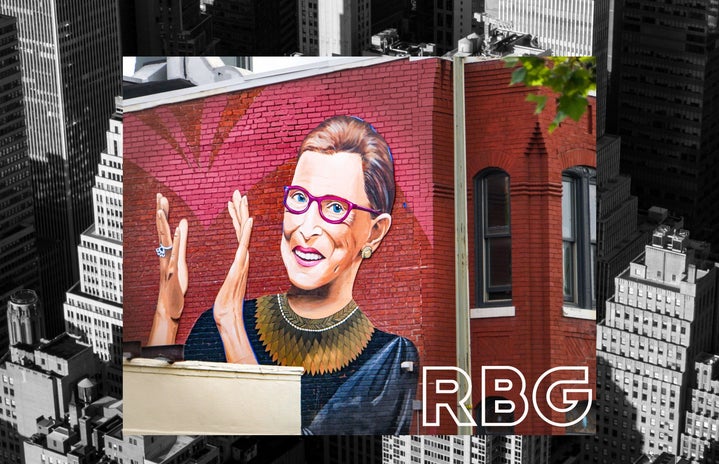***This article was originally written in September 2021, never published until now.***
My thoughts after RBG’s death…
By now, everyone is aware that Supreme Court Justice Ruth Bader Ginsburg has died at the age of 87 years old. Ginsburg was a champion of women’s rights and gender equality that redefined a woman’s role in society. It’s because of women like her that I can feel empowered, that I am secure in my personal freedoms, and that I can advocate for people who do not have these same privileges- people like Native Americans; a group that unfortunately was not always helped by Ginsburg’s greatness.
This is not at all meant to be a slanderous piece criticizing the late, great RBG. It’s instead a reminder that there is still work to be done to establish equality in our country for all genders, races and cultures. Ginsburg’s legacy as a women’s rights icon is sealed, but her mixed record of decisions affecting tribal communities is up for debate. We should use her momentum and her passion to continue the fight for equal protection of all people who call this land their home. Women and girls are so lucky to have Ginsburg as a feminist icon that paved the way for them, but it’s time we find that hero for Native Americans. It’s beyond time.
I’ll admit, I was not aware of Ginsburg’s judicial record in cases involving tribal law and Native Americans’ rights until a few years ago when I listened to the This Land podcast from Crooked Media. The podcast discusses a homicide case from 1999 that seemed to be open-and-shut until it was discovered that the crimesite had been incorrectly recorded. The actual site of the murder was on the side of the road in territory that was technically given to the Creek Nation by the U.S. government to make up for kicking them out of their original tribal lands over a century ago. Despite the discrepancy, the confirmed killer was sentenced to death by the state of Oklahoma.
The case raises a question of jurisdiction. If the crime was committed on Creek land, then the perpetrator would be under tribal jurisdiction and subject to their trial and sentencing. If, however, the death-sentence ruling by the state of Oklahoma would be upheld in the 2018 Supreme Court case Carpenter v. Murphy (later Sharp v. Murphy), then the court would effectively be ruling that lands given to tribes in 1866 are obsolete.
Luckily, the court overturned the original sentence by the state of Oklahoma: a win for tribal law, with Ginsburg agreeing that the crime took place on lands that had not been disestablished by the federal government and therefore remained Creek Nation. But cases don’t always end up this favorably and Native Americans continue to face an uphill battle in protecting their land, their families, and their culture. The narrative of anti-Indigenous neocolonialism ought to be changed by now; these people have been beaten and battered by the federal government for far too long. Their people are being targeted: raped, beaten, and killed. And the government very rarely, if ever, keeps data on missing or murdered Indigenous people. They’re vulnerable and overlooked in a land that they nurtured and protected long before most of our ancestors ripped it away.
Ginsburg’s contributions to the Supreme Court and to the justice system in general are undoubtedly monumental. While she made questionable decisions (Sherrill v. Oneida, for example) that reinforced anti-Native sentiments, she did eventually do some good before her death. Nevertheless, there is still a lot of work to be done in order to give Indigenous peoples their due respect, representation and protection that all of us are given under the Constitution.
I am lucky to be able to look at RBG as a powerful woman in a place where meaningful decisions are being made. I strive to be like her, like any woman who has the opportunity to make a true difference in the world. I hope that someone will be that kind of leader for our Indigenous neighbors, sooner rather than later. They deserve equal protection on this land, just as RBG pioneered for women.
For more on missing/murdered Indigenous women, visit my article [ignore the unrelated thumbnail]:
For more on Ruth Bader Ginsburg’s legacy in women’s rights, visit my friend Grace Klein’s article [ignore the unrelated thumbnail]:


